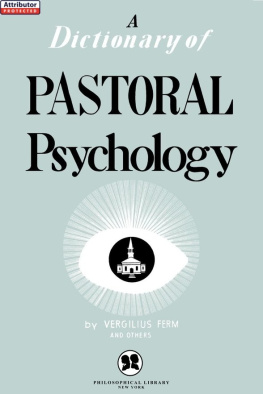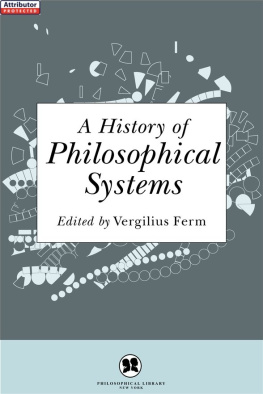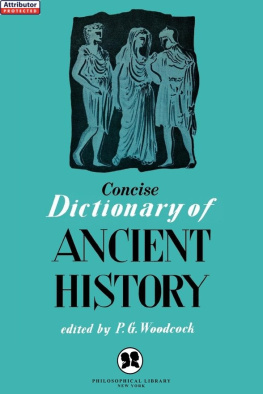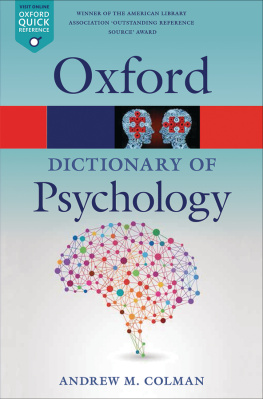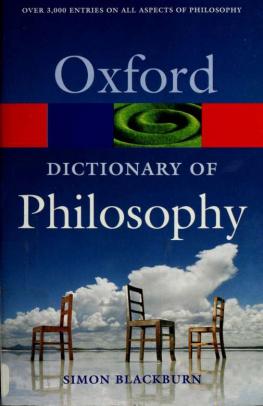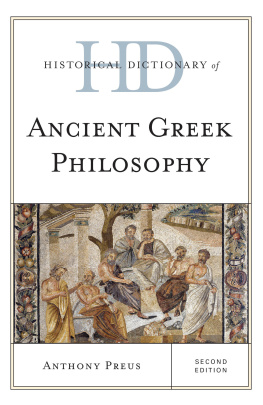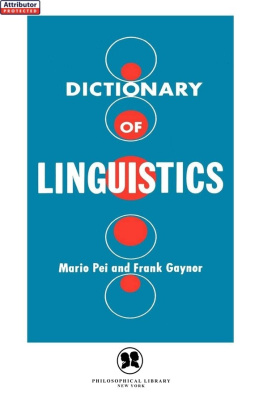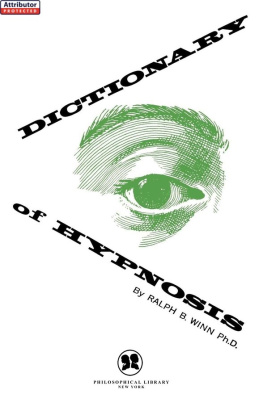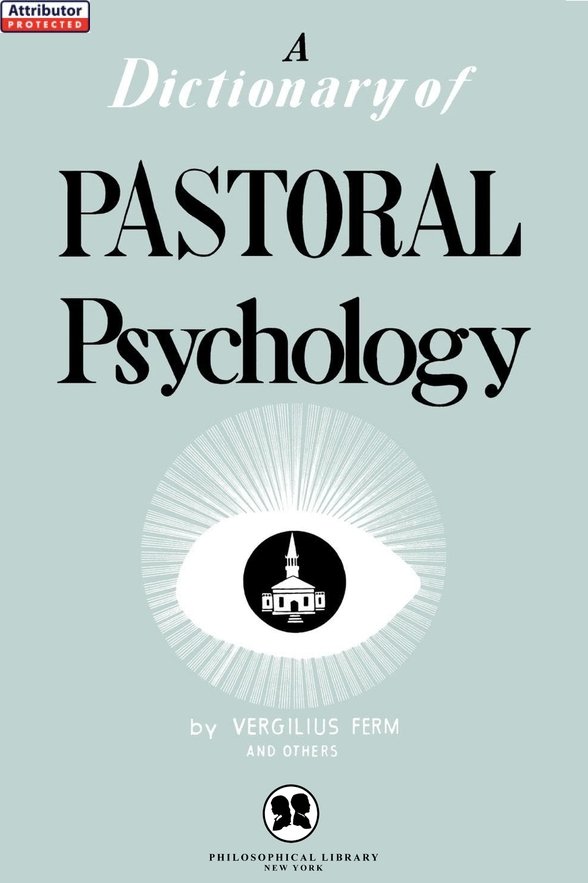BOOKS BY VERGILIUS FERM
The Crisis in American Lutheran Theology (1927)
What is Lutheranism? (1930), Editor
Contemporary American Theology, Theological Autobiographies, Volume I (1932), Editor
Contemporary American Theology, Theological Autobiographies, Volume II (1933), Editor
First Adventures in Philosophy (1936)
Religion in Transition (1937), Editor
First Chapters in Religious Philosophy (1937)
An Encyclopedia of Religion (1945), Editor
Religion in the Twentieth Century (1948), Editor
What Can We Believe? (1948)
Forgotten Religions (1950), Editor
A History of Philosophical Systems (1950), Editor
A Protestant Dictionary (1951)
The American Church (1953), Editor
Puritan Sage, The Collected Writings of Jonathan Edwards (1953), Editor
The Protestant Credo (1953), Editor
Their Day Was Yesterday (A Novel) (1954)
A Dictionary of Pastoral Psychology (1955)
A
ability: see deliberate effort; genius; mental ability; success; talents; work.
abnormal conduct and abnormalities: see analysis; complexes; genius; glands; old age; psychology of religion; psychoneuroses; visions and hallucinations.
abreaction: see analysis.
absolute contrast, fallacy of: see fallacy of absolute contrast.
absolutes, the four, in the Oxford group movement: see group psychotherapy.
absolution: see confession.
acceptance: see analysis.
accidental criminals: see criminal types.
acculturation: A term for the process of absorbing the mores of a culture* originally foreign or alien.
achievement: see creative thinking; efficiency and time of day; success; talents.
achromatopsia: see color blindness.
acromegaly: see hyperpituitarism.
acrophobia: see phobias.
act psychology: see psychology, schools of.
actual neurosis: see neurosis, actual.
adaptation: see morale; psychoneuroses; psychology of religion; psychology, schools of.
Addisons disease: So-called from the English physician, Thomas Addison, who defined it in 1855. An adrenal disturbance, the symptoms of which are severe weakness, anxiety, apathy, lassitude and vertigo.* See adrenal glands; endocrine glands.
adjustment: see analysis; Dewey, John; dysphonia; instrumentalism; old age; pragmatism; psychology of religion (J. C. Flower); psychology, schools of.
Adler, Alfred: (870-1937) A follower of Freud,* he departed from the latters emphasis on sex, holding to the view that the basic feature of a neurosis* is an attitude of inferiority resulting from a frustration of the urge for superiority. He called his branch of psychotherapy individual psychology. He stressed purposes and goals rather than drives and causes. In 1920 he set up clinics for the training of teachers in the treatment of poorly adjusted pupils.
Adler, originally from Vienna, developed his psychology in the United States. See fiction; inferiority complex; psychology of religion; psychology, schools of (psychoanalysis).
Adlerian approach to therapy: A history of the work of Alfred Adler* would show a particular approach to the counseling or therapeutic situation. Adler bases his approach to analysis* upon the social nature of man. Man sees himself as inferior to the social context in which he finds himselfinferior in his ability to make himself felt as a power in his connections with others. It is the frustration of power drives* in the individual which constitutes the source of a neurosis.* A child is frustrated in his ability to compete with the power which adults have over him and, in sublimating the drives to keep in accord with the power of adults, constructs the foundation of social inferiority throughout his life. Adler points out, however, that the facts of existence dictate a social interdependence which man cannot deny save by endangering his ability to survive. A weak man may be denying the power urge and may subordinate himself to the social structure. An extremely ambitious man may succeed at the expense of others in the social structure. Both of these men, in extremis, constitute the two sides of a piece of cloth. The solution to the neurotic personality complex will be, according to this school of approach, to integrate the personality with the social order: the weak man not denying his power and the overly ambitious man not denying the social structure by directing his power drives in constructive social channels. Adler, unlike Freud,* does not make a great deal of the sexual aspects of neurosis. He sees sexual activity as simply another manifestation of the social inferiority or superiority. W.W.B.
adolescence: see hamartophobia; pastoral counseling: case studies; psychology of religion; teen-agers.
adolescence crisis-experience: see psychology of religion; teen-agers.
adrenal glands: These are endocrine glands* adjacent to the kidneys. In intense emotional states the adrenal medulla secretes adrenalin; the hormone* known as cortin is supplied by the adrenal cortex. Hyperfunctioning of the adrenal cortex in childhood causes precocious puberty in males, in females a condition tending towards masculinity; in adult women, hyperfunctioning brings on virilism, inhibition of sex functions and excess hair on the face. Deficiency of cortin may result in Addisons disease.* See emotion.
adult, the: A fully matured organism is called an adult. In a legal sense, a human adult is usually considered in terms of age, viz., twenty-one years or older. A mental hygienist speaks of an adult as one who adjusts realistically to his environment.
The maturing process is, in each individual, one that begins in the embryonic stage and should cease only with death. No matter what ones age may be one is getting old. One may justly speak of a very young person in years as an adult if the maturing process is of the kind that makes an adjustment proper to the years of experience.
Old age* is also a relative term in terms of adaptation and functioning. People are now living longer. In America by 1980 there will be some sixty million forty-five years and older and some twenty-one million over sixty-five. Unless the proportionate number of increases in birth-rate balances the increase in life expectancy, there will be more old people than young in another quarter century.
In the maturing process more is now known of the physical aspects of the aging process* than that of the mental. Some medical experts explain the aging process as due to the decrease of food and oxygen to the cells of the nervous system. The Russian scientist, Bogomolets, explains the degenerative process of age as due to the deterioration of connective tissues, including the walls of the blood vessels. He claimed to have produced a serum which would revitalize the degenerating connective tissues or to prevent aging by early administration. His belief was that the natural life span is at least five times the period of growth of any organism. Accordingly, if man reaches the peak of growth at the age of twenty to twenty-five he should live one hundred and fifty years or longer. This conjecture is in great contrast to the life expectation of an ancient Roman, which was twenty-five years. Adult age would have come then in the teens. Today older people look and feel younger at old age than their counterparts in previous generations.
The difference in the rate of aging makes the conventional time for retirement absurd. A study made by the Harvard Fatigue Laboratory suggests that the theory of rapid decline after forty in quality and quantity of work is without foundation. In a machine age, heavy physical labor is reduced and the need for maturity in judgment and insight increased. Here the adult has the advantage.

